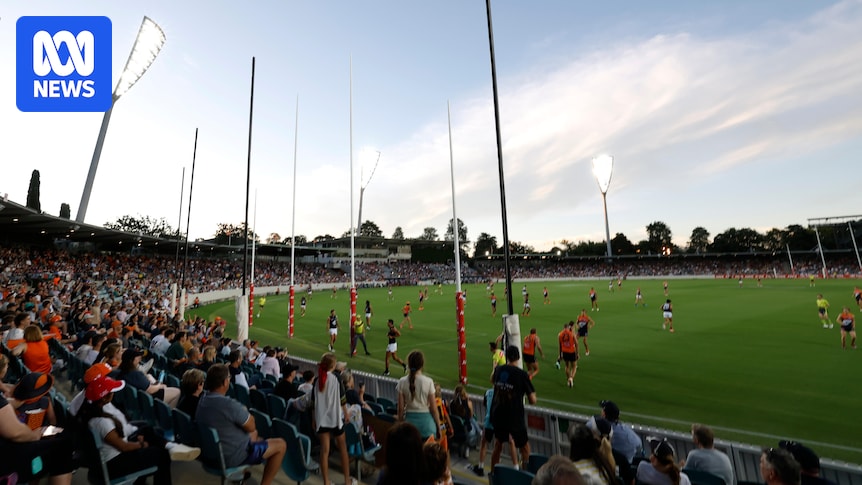The race for the location of the AFL’s 20th team is heating up. As powerbrokers across the nation are starting to stake their claims, Sean Lawson and Cody Atkinson look at the options.
Why it matters
- The decision on the AFL's 20th team location could reshape the league's landscape and fan engagement.
- Stakeholders from various regions are actively lobbying to secure the new franchise, highlighting the growing interest in Australian rules football.
- The addition of a new team is expected to provide economic boosts and foster community spirit in the chosen location.
As the Australian Football League (AFL) edges closer to announcing its 20th team, the race among potential locations is becoming increasingly competitive. Power brokers from across the country are making their cases, each region eager to showcase its strengths and advantages. With the spotlight now shining on three main contenders—Northern Territory, Western Australia, and Canberra—the debate over where the new franchise should be based is heating up.
The Northern Territory has long been considered a strong candidate due to its passionate local fan base and the growing popularity of AFL in the region. Advocates argue that establishing a team there would not only increase participation in the sport but also provide a platform for Indigenous players, further enriching the league's diversity. The Territory's unique culture and connection to the game could create a vibrant atmosphere for fans and players alike, making it a compelling choice for the league’s expansion.
Conversely, Western Australia presents a robust case, backed by its established infrastructure and a history of AFL success. The state is home to two existing clubs, the West Coast Eagles and Fremantle Dockers, which have cultivated a passionate and loyal following. Proponents for a new team in WA suggest that the state could sustain another franchise, particularly given the growing population in urban centers like Perth. A new team could also enhance rivalries and further engage fans, thereby elevating the overall AFL experience in the region.
Canberra, while often overshadowed by its larger counterparts, is making a strong push as well. The Australian capital has a unique blend of demographics, with a youthful population and strong community support for local sports. Advocates for a Canberra team argue that the city is ripe for AFL expansion, with a strategic location that could draw fans from surrounding areas, including New South Wales and Victoria. The establishment of an AFL team could serve as a catalyst for increased interest in the sport and greater regional representation in the league.
As discussions continue, AFL executives are weighing various factors, including potential fan bases, financial viability, and the broader impact on Australian rules football as a whole. The league is also considering how the selection of a new location aligns with its long-term goals of inclusivity and growth. The choice of the 20th team is not merely a matter of logistics; it represents an opportunity to strengthen the league’s connection with diverse communities across Australia.
The ongoing deliberations have sparked interest not only among fans but also across various stakeholders, including local governments, businesses, and sporting organizations, all of whom are keen to understand the implications of the AFL's decision. Each region is leveraging its unique attributes—whether it be local engagement, economic conditions, or sporting culture—to bolster its case in the hope of landing the coveted franchise.
The intensity of the competition for the AFL's 20th team location underscores the growing popularity of the sport in Australia. As more cities and regions express interest, the league is faced with the exciting challenge of selecting a site that not only enhances the competition but also enriches the community. The ultimate decision will have significant ramifications for the future of the AFL, shaping its landscape for years to come.
In conclusion, as stakeholders rally to advocate for their respective regions, the decision on the AFL's 20th team will not only affect the league's operational dynamics but also reflect broader societal trends within Australian sport. The announcement is anticipated to be a pivotal moment, marking a new chapter in the AFL’s storied history.











